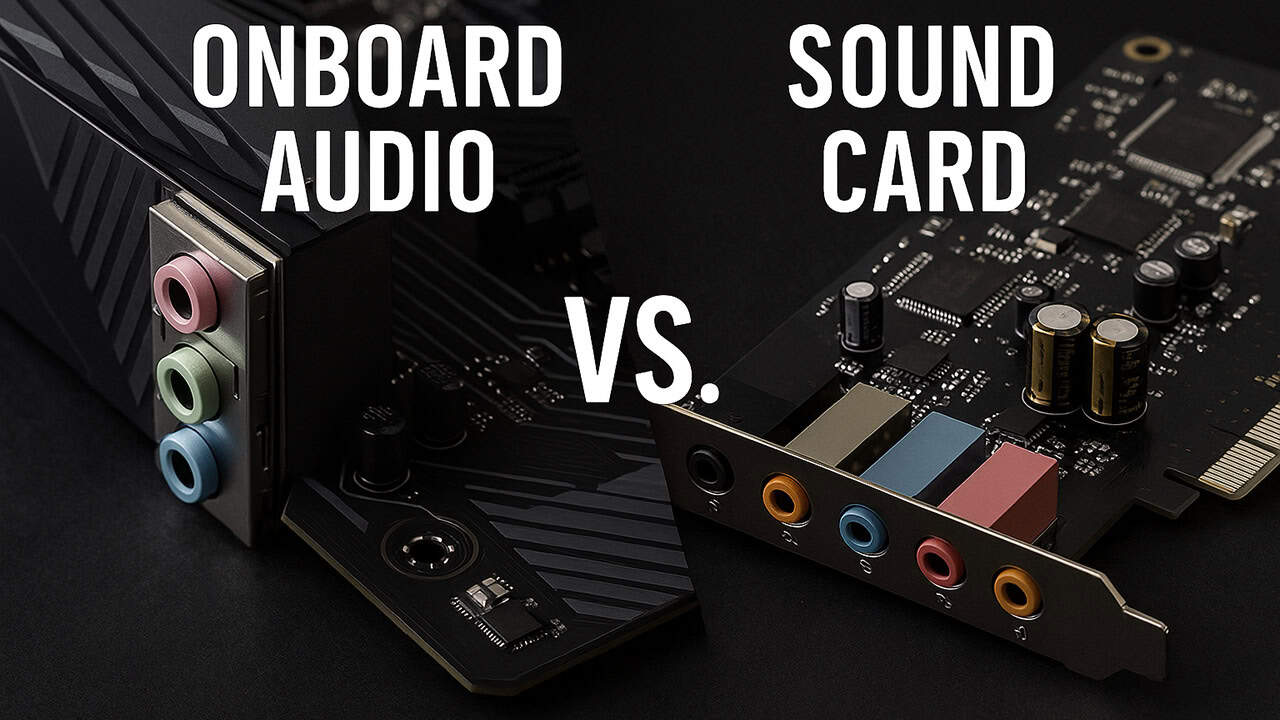For most modern PCs, onboard audio seems "good enough", and often, it is. But if audio quality matters to you, even a little, it's worth taking a closer look.
This isn't about audiophile extremes or marketing fluff. It's about understanding the real-world differences between the two options, because depending on how you use your computer, or your own audio preferences, one will clearly suit you better.
Firstly, a Bit About Onboard Audio
Because onboard audio is built into the motherboard, it's cheap and required very little consideration in terms of set up. It also provides everything most users need, like a basic DAC (Digital to Analog Converter) and enough output ports for speakers or headphones.
So, for most everyday needs, it is sufficient in a general sense. But trade-offs are often overlooked.
What a Dedicated Sound Card Can Offer
Because a sound card is a dedicated add-on for your computer, it increases the chances for better audio components and design. Now, this isn't always the case, but if you choose a good product, it will usually offer a step up compared to an average motherboard's audio.

Here Are Some Differences That Actually Matter
This may get a little technical, but stick with it, you will see how it comes together.1. Sound Quality
Sometimes onboard audio can sound a little flat. Some people like this, while other might not. Either way, it's more challenging trying to fine tune a dynamically flat sound than the other way around.
2. Design, Components, and Audio Filtering
I find it quite interesting that it isn't discussed much. Motherboards have limited space for components, so the best is done for the allowed real-estate.
So, compromises can be made to resulting in a less refined filtering, both for power and audio. Dedicated op-amps seems less prevalent, and better quality components in general help to deliver a better overall product.
Now, I'm not saying this is always the case, however, it does occur more often than many think. As a result, the improved design and sheilding layout helps avoid hisses, maintains signal integrety, and lessens the chances for hums. I have seen this myself on numerous occasions. This also helps preserve audio detail at both lower and higher volumes.
3. Extra Features and Control
Again, it isn't always the case, but often, dedicated sound cards offer better software enhancements. EQ profiles, virtual surround processing, and better mic input support, along with other fine tuning capabilities, can be extremely handy for some people's needs.
Where a Dedicated Sound Card Doesn't Come Out On Top
1. Setup and Simplicity
Onboard audio usually works pretty much straight out the box. Often, the audio works without the need for the installation of drivers from the manufacturer. Even though it is recommended anyway.
Additionally, you would have to either disable the onboard audio in the motherboard's BIOS for easier audio output selection, or you would have to ensure the correct output device is selected in the operating system.
2. Cost
Purchasing a sound card or external audio device is a separate purchase, unlike the built in audio device for your motherboard comes at no extra cost.
So, to Summarize
Onboard audio has improved significantly in recent years, and for many, it's all that's needed. But if sound matters to you, even just for the occasional immersive gaming session or lossless music playback, a dedicated sound card delivers more than just "better audio". It delivers a cleaner, more refined experience designed with sound in mind.
